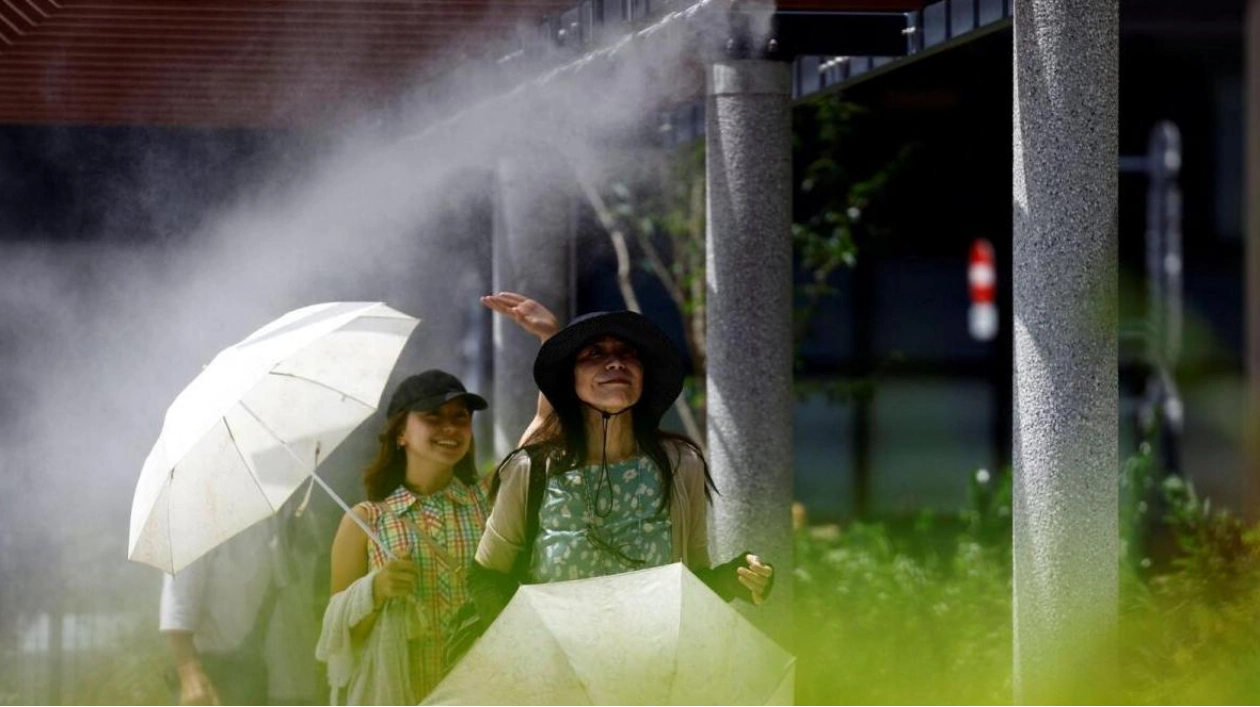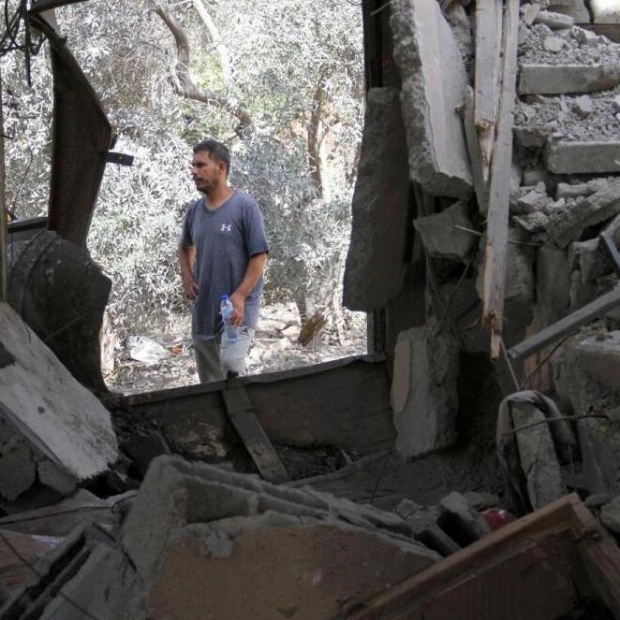This past weekend, the central Shizuoka region marked the first instance in Japan where temperatures soared to 40 degrees Celsius, significantly exceeding the 35-degree mark considered 'extremely hot' by meteorological authorities. This intense heat during Japan's rainy season is described as 'quite unusual' and is attributed partly to a robust high-pressure system over the South Pacific, according to a weather agency spokesperson.
On Monday, record-breaking temperatures close to 40 degrees Celsius were also recorded at monitoring stations in Tokyo and the southern Wakayama region, as reported by local media. Over the last few days, authorities have issued heatstroke warnings across most of the country, advising people to refrain from outdoor activities and to utilize air conditioning. The capital reported three heatstroke-related fatalities on Saturday and another three on Monday, with temperatures peaking around 35 degrees Celsius at midday, according to the city's medical examiner's office.
'Without the AC on, I find it hard to cope,' said 75-year-old Tokyo resident Sumiko Yamamoto to AFP, noting a 'drastic increase in heat' compared to the previous year. 'I follow the advice on TV to stay hydrated as much as possible. Being older, I'm cautious to avoid collapsing,' she added. Heatstroke is notably lethal in Japan, which ranks second globally in terms of the oldest population after Monaco. Yamamoto's age places her in a demographic particularly at risk for heatstroke, along with infants and those living alone or unable to afford air conditioning.
The Japanese Association for Acute Medicine on Monday cautioned about the escalating death toll from heat exhaustion across the nation, which has risen from a few hundred annually two decades ago to approximately 1,500 in 2022. The high number of deaths indicates that heatstroke now presents a risk comparable to that of 'a major natural disaster,' the group stated, urging against non-essential outdoor activities. Tokyo business executive Mikio Nakahara, 67, highlighted the stark contrast between Tokyo's climate 50 years ago and today.
'Tokyo wasn't as hot back then,' he told AFP. However, nowadays, 'I opt to work remotely as much as possible to avoid going outside.' As increasingly hotter summers become the norm worldwide, tourists like 29-year-old Ainhoa Sanchez are not overly shocked by Tokyo's heat. 'Our plan is to do some sightseeing, drink plenty of fluids, and perhaps take a break in a shop to cool down before resuming our activities,' she explained.






